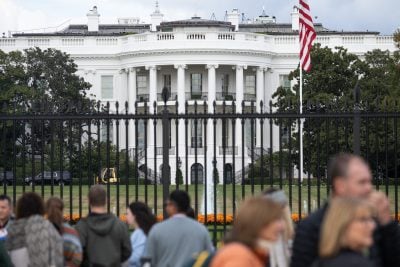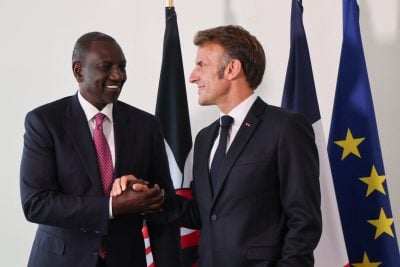South Africans set aside their differences to confront and defeat a road toll system they considered unfair, unworkable and financially predatory. In the process they engineered an extraordinary national solidarity in which races joined hands, ideologies intermingled, politics were set aside and the wealth divide did not matter. Tom Nevin reports.
What set the collective blood boiling was a looming toll system that cost billions of rands to install and would need billions more to manage and collect fees. Touted as a means to raise funds to maintain existing roads and build new ones, the money trail showed that administrative costs, collection fees, interest and repayments would leave nothing for road improvement.
While the state-owned South African National Roads Agency (Sanral), the architect and pilot of the Gauteng Freeway Improvement Project (GFIP), had initially estimated collection costs at 15%, Transport Minister Sbu Ndebele subsequently conceded in parliament that in its first year of operation R1.12bn ($160m) would be spent to collect R1.02bn ($146m). The interdict applicants argued that this was “clearly irrational and unreasonable”.
More revelation pointed to an estimated one million non-payment infractions a month bringing enormous pressure to bear on an already overworked police force charged with tracking down e-toll offenders and bringing them to book in courts where rolls are months in arrears as it is. And yet, aware of the system’s shortcomings, Sanral tried desperately to force the process through and was only halted by the high-court hearing at literally the eleventh hour. The two-day hearing was held on 26th-27th April with the e-toll system scheduled to go live for 1st May.
In granting the interdict sought by the Opposition to Urban Tolling Alliance (Outa), Judge Bill Prinsloo effectively stopped the project so that a full court review can be carried out to decide whether or not it should be scrapped. The review could take months, if not years, to sort out. As the extent of the blunder leaked out, public anger mounted and opposition to e-tolling ballooned bringing together the public, civic organisations, motoring associations, trade unions and opposition parties in a massive show of solidarity and strength. The issue drove a wedge between the ANC and labour movement Cosatu, two components of the governing tripartite alliance, with the unionists threatening mass action to stop the tolling system with the ruling party backing Sanral.
Cosatu, a spearhead of popular resistance to e-tolling, mounted widely supported protests in a battle “that presented the unprecedented possibility of the trade union federation taking its political ally to court”, notes researcher Gaye Davis in The Star newspaper.
In an attempted last-minute compromise, Cosatu and the ANC offered a 30-day hiatus to the toll’s launch, but it was too late and the following day the court handed down the interdict that scuppered the project in its present form.
Contracts to be scrutinised
A bonus arising from the anti-tolling brigade’s victory is that Sanral will now be compelled to reveal the full scope of the contract it signed with foreign and domestic suppliers and contractors, including costs and how they were to be disbursed.
Sanral and the department of transport had steadfastly refused to allow scrutiny of how the accumulated debt of around R20bn ($7bn) so far was calculated. It is a key issue the court review will focus on. In his finding, Judge Prinsloo found that Sanral had failed to reveal the true costs of e-tolling, or the contract with the German Electronic Toll Collection (ETC) consortium selected to manage the system. The consortium is led by Daimler AG, Deutsche Telekom and Cofiroute.
Significantly, the judge found that “motorists would suffer irreparable harm should the interdict not be granted”. He ruled that the system is impractical to implement and that collection costs are disproportionate to the actual toll fees. Wayne Duvenage, chairman of Outa, the anti e-toll alliance, contends that if Sanral and the government had really thought about what was best for the public they would never had embarked on the GFIP. “Sanral has other hidden agendas,” he charges. “It has not been open and transparent and willing to engage and had to be challenged.”
Sanral’s refusal to disclose details of the contract included a farcical episode in which the agency was finally pressurised into delivering the contract which, when opened, was found to have most of the contents blacked out.
Pulling out all the stops, Sanral insisted that the project had progressed too far to suddenly be stopped and if it were, the country would suffer severe financial harm, including the R20bn ($2.5bn) installation costs that would have to be repaid to lenders regardless of whether or not the GFIP proceeds. The debt was underwritten by the South African government. The Treasury appeared as a Sanral witness to impress upon the court the damage that halting the project would cause to the fiscus in having to repay the debt without toll income and the harm that would accrue to South Africa’s reputation in capital markets.
Cynics abound
But not all economists were convinced. A fair proportion have dismissed claims of the dire consequence to national finances and the trashing of South Africa’s global credit rating if the e-toll programme did not go ahead.
Economist at Johannesburg’s Investment Solutions, Chris Hart, says there is “a weakness in expenditure the government is not telling us about” if the interdict destabilises expenditure to any great extent. He describes the delay as “no big deal” and estimates the government would have to pay less than R2bn ($285m) a year to service the GFIP incurred debt.
Efficient Group economist Dawie Roodt says the government’s chaotic efforts to introduce e-tolling, and the High Court’s order to halt the project, have cast a shadow over the state’s multibillion-rand infrastructure plans, with questions raised about its ability or willingness to guarantee debt.
“South Africa’s leadership also appears weak and confused, which could damage the country’s image as an investment destination,” he maintains.
Standard Bank’s chief economist Goolam Ballim says contractual infringement does not imply sovereign default risk and won’t affect South Africa’s international credit standing. “It’s a government-guaranteed debt,” he says, “and if Sanral can’t pay it, the government will. Hart also notes that March’s hike of 10 cents a litre in the government levy on price of petrol will give the government enough leeway to service the debt.
Peter Attard Montalto, emerging market economist, warns that the inability to raise tolls carries serious fiscal risk, sets a dangerous precedent and could have negative implications for the government’s infrastructure programme.
Dramatic as events were in the upending of the e-toll road project, local financial markets were left largely untouched because, proposes Investec economist Tertia Jacobs, “the markets had expected nothing less than a fiasco”. She points out that the e-toll controversy has been simmering for months and the markets are waiting to see how the government and Sanral will overcome the impasse.
Factors that weighed heavily on the legal proceedings were the steep toll cost, a serious lack of public transport, the knock-on effect toll costs would have on inflation and how the poor would suffer as would, by association, the informal economy.
In the final analysis, the interdict means the implementation of e-tolling will be delayed for a period of months or even years depending on how long a review of the process by Outa will take. Essentially, the interdict will be in place until all litigation pertaining to the review process is concluded which, in the opinion of one senior council, could be more than a year.
Ordinary South Africans insist they will not be able to afford to pay for tolls and have no alternative.
Want to continue reading? Subscribe today.
You've read all your free articles for this month! Subscribe now to enjoy full access to our content.
Digital Monthly
£8.00 / month
Receive full unlimited access to our articles, opinions, podcasts and more.
Digital Yearly
£70.00 / year
Our best value offer - save £26 and gain access to all of our digital content for an entire year!
 Sign in with Google
Sign in with Google 


